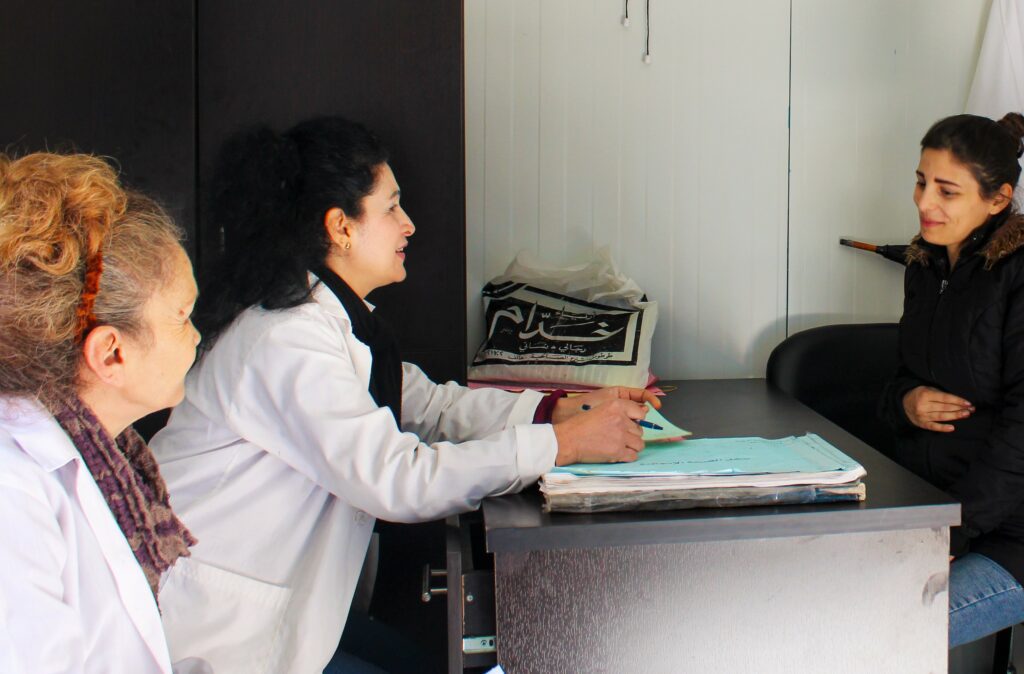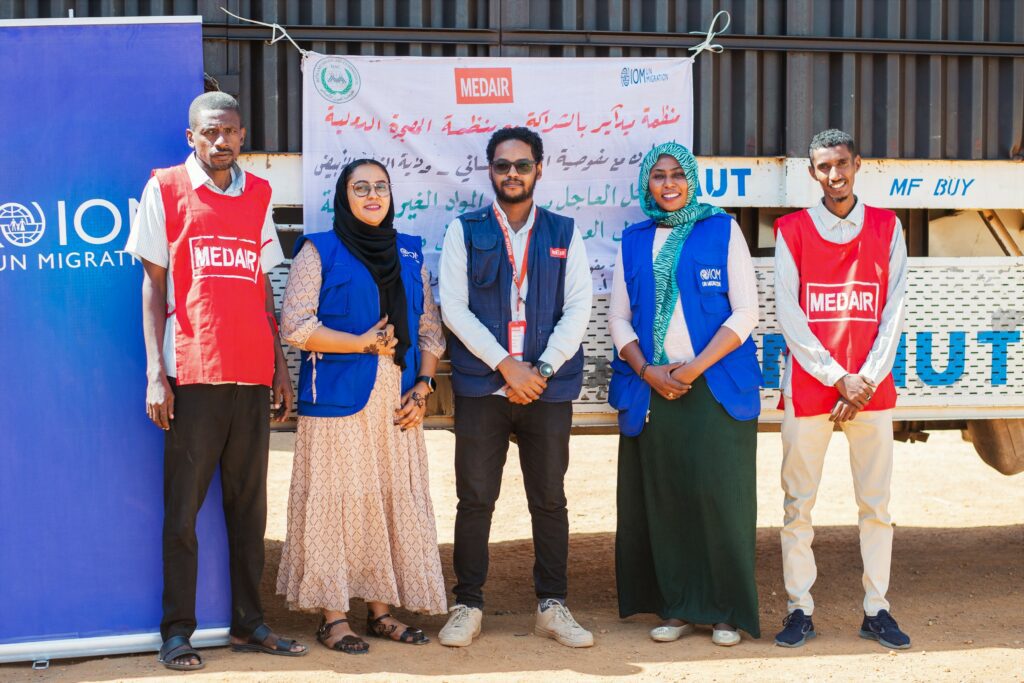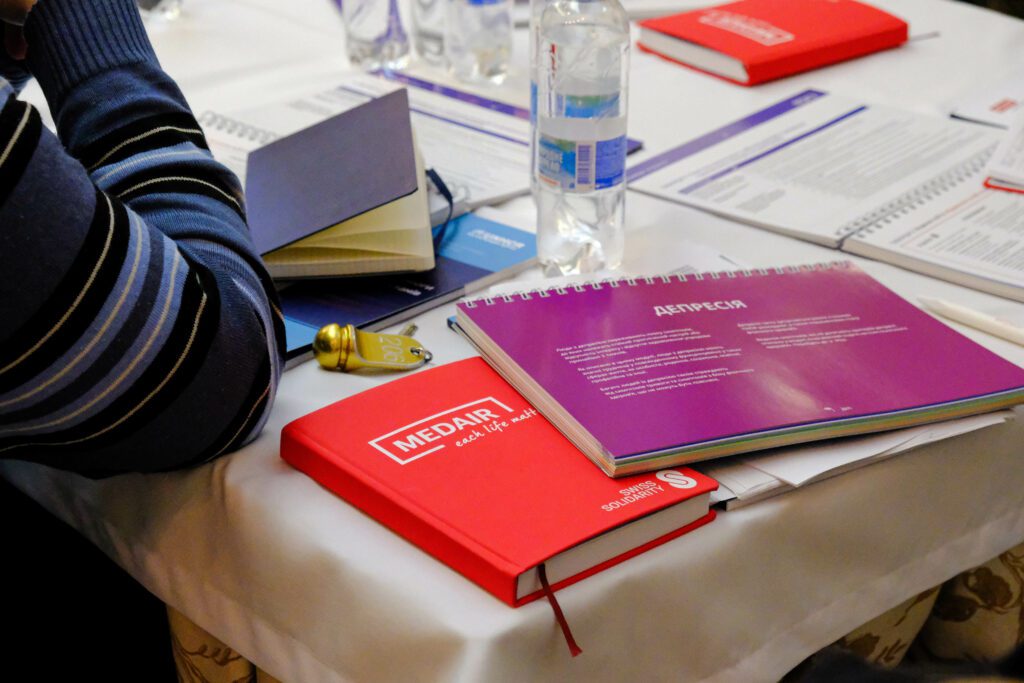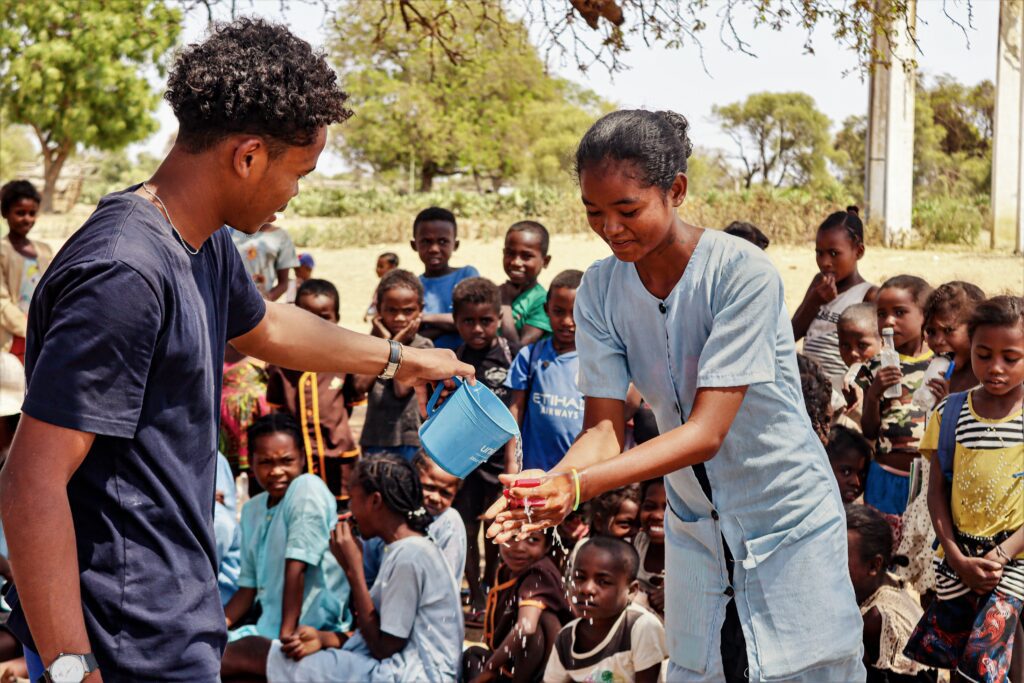Nearly one year after the disaster, the impact of the devastating 4 August explosion at the heart of Beirut is still felt. In the hopes of better understanding the needs of the communities we serve, members of our psychosocial support team in Beirut recently met with local residents and business owners whose lives were impacted by the explosion to discuss the challenges that they continue to face. With permission from attendees, this is an inside look at those discussions.
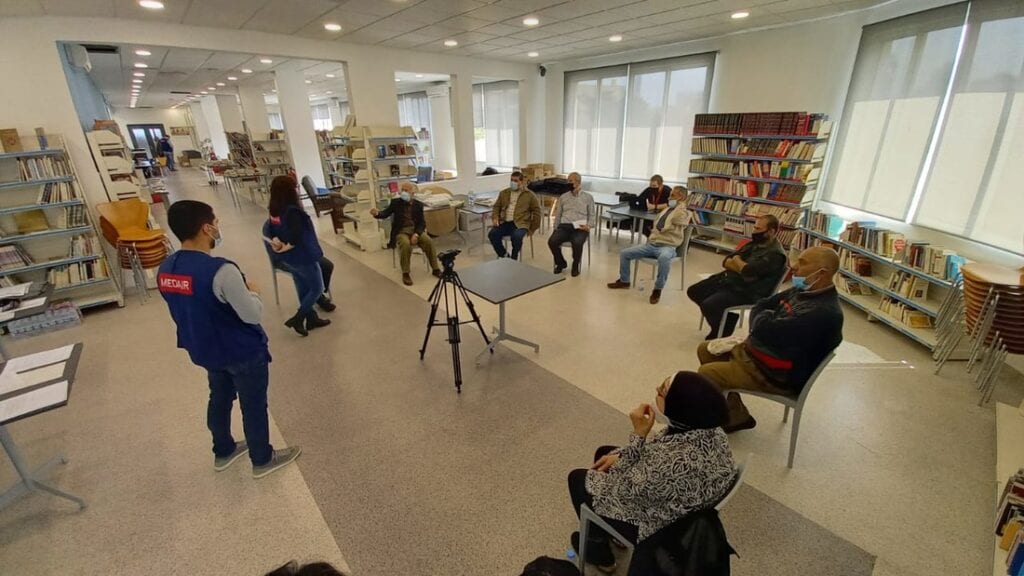
Discussion group attendees gather at the Assabil Library, located near to the site of the Beirut explosion.
Sat a safe distance apart from one another, the session begins. Bringing community members together like this gives them the opportunity to discuss their experiences of coping with the aftermath of the explosion, raise concerns, and hopefully inspire a sense of hope as participants hear of one another’s stories and difficulties.
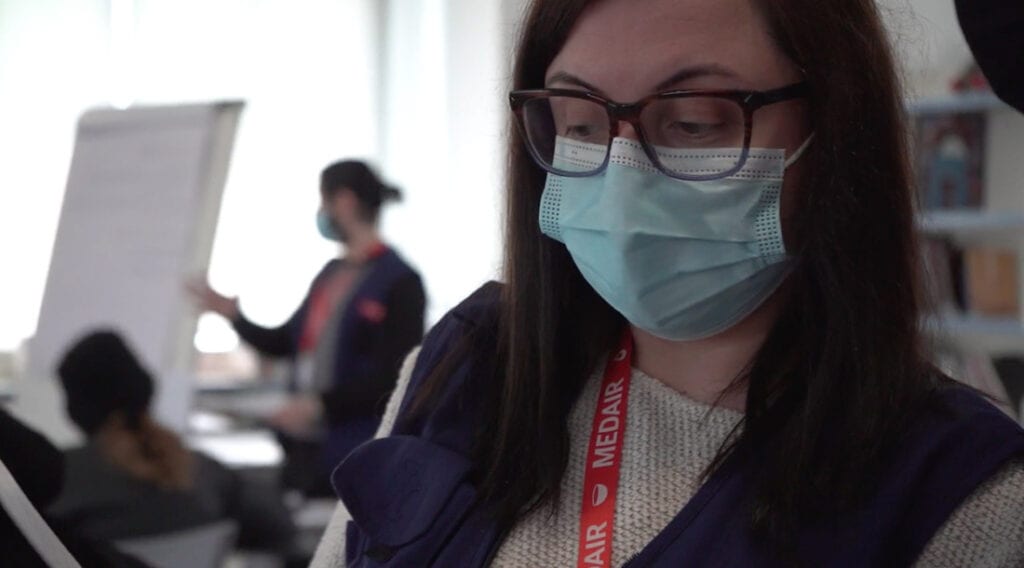
Our colleague Tania, a member of our psychosocial support team in Beirut, introduces the topics under discussion with attendees.
‘The most important aspect of these discussions is to better understand the urgent needs of the community affected by the Beirut port explosion as well as the compounding crisis in Lebanon,’ says Tania. ‘It is crucial that we listen to the people we serve to better understand how and where Medair can provide support.”
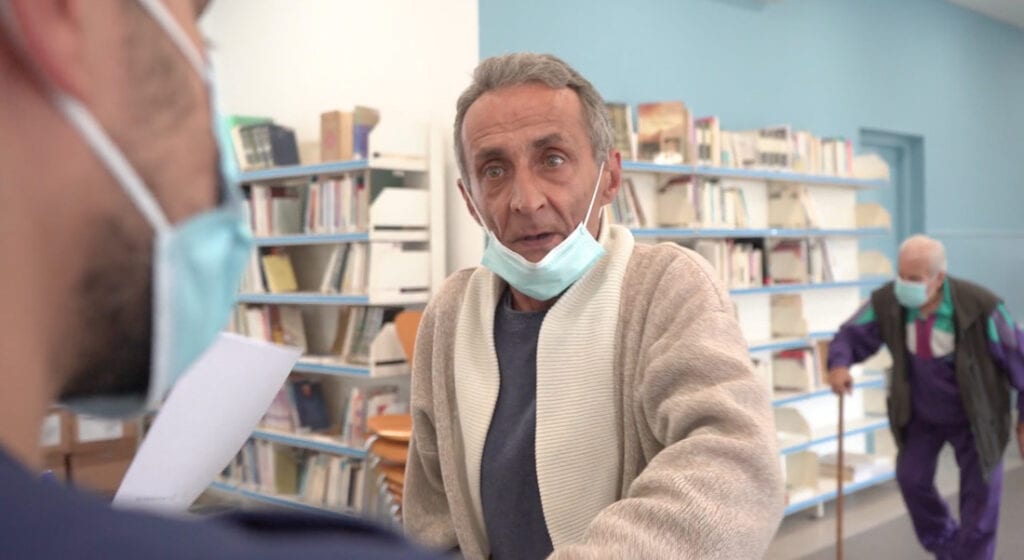
Barbershop owner Hatem, 65, speaks with our colleague Maher, a Shelter Manager, about reopening his barbershop.
‘With the political and economic crises, the Beirut port explosion and the COVID-19 pandemic at large, a 65-year-old man like me cannot stay at home and enjoy his retirement here in Lebanon,’ says Hatem. ‘I was a barber for over 50 years. A couple of years back, I closed my barbershop and retired. Because of the dreadful situation we are facing now, I find myself re-opening my business and starting from zero. Can you imagine this? We are here today to voice our struggles to you, because it is a matter of survival.’
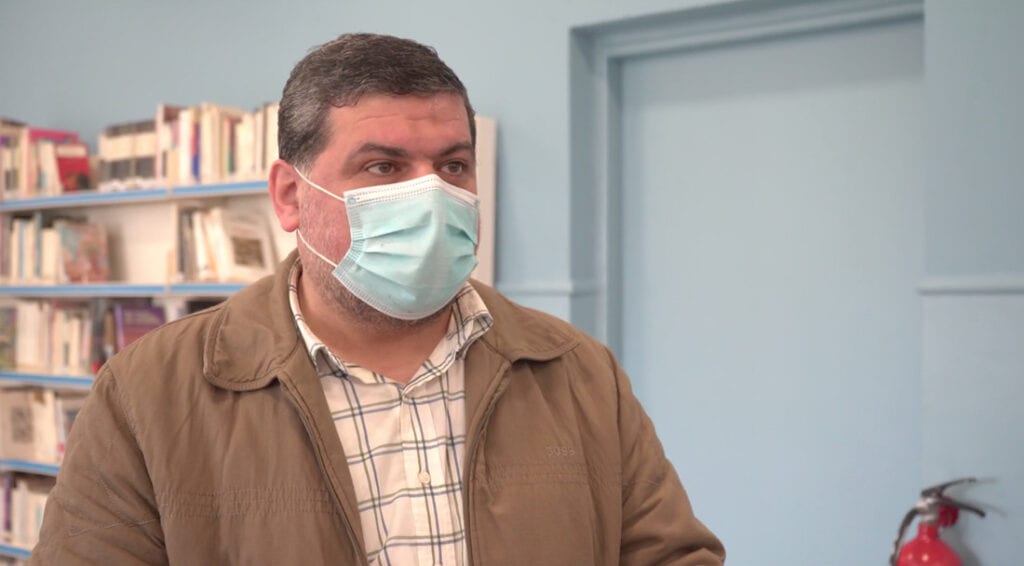
Mohammad, 55, owns a small tire repair shop near the site of the explosion. His biggest worry is not being able to purchase products to sell to customers.
Says Mohamad, ’We came here to talk about the problems that we are facing with our businesses. We are hoping to God that some support can be provided to us as small businesses to be able to keep us afloat. The rise in prices with the devaluation of the Lebanese pound has made it really hard for us to maintain our clientele, because we are buying and selling at expensive prices, with very little profit – sometimes no profit even.’
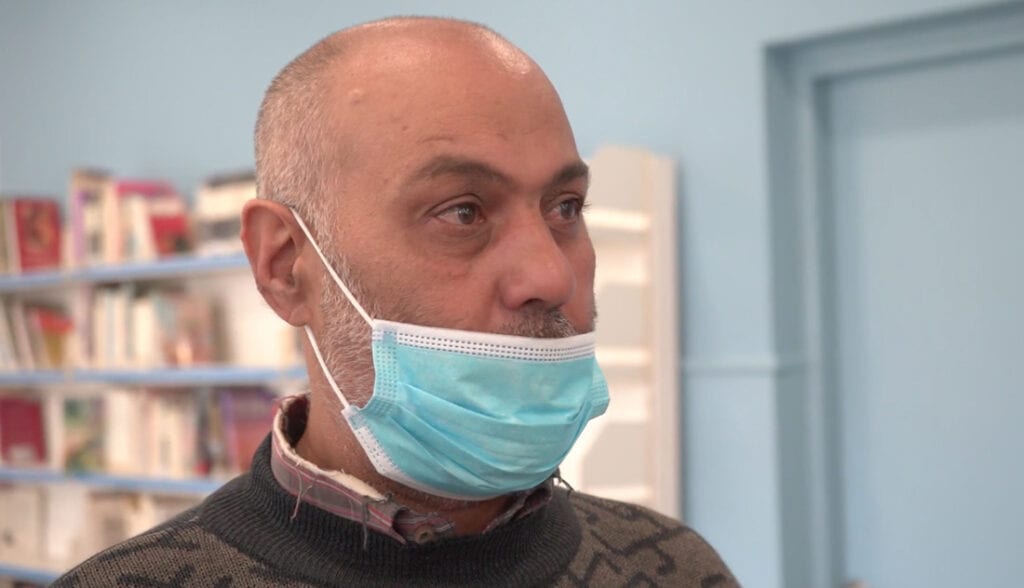
Adel, 56, owns a small mini market in Bachoura area, near the site of the Beirut explosion.
‘We were already on the verge of hitting rock bottom because of the crisis in Lebanon and the COVID-19 pandemic,’ says Adel. ‘Finally, the explosion pushed us over the edge. Personally, the urgency for me at the moment is that with the currency devaluation everything became really expensive. I am somehow finding myself working harder but providing less for my family.’
‘Being here today has allowed us as a unified community to really voice the struggles we are facing in our daily lives in Beirut, especially after the explosion,’ he added.
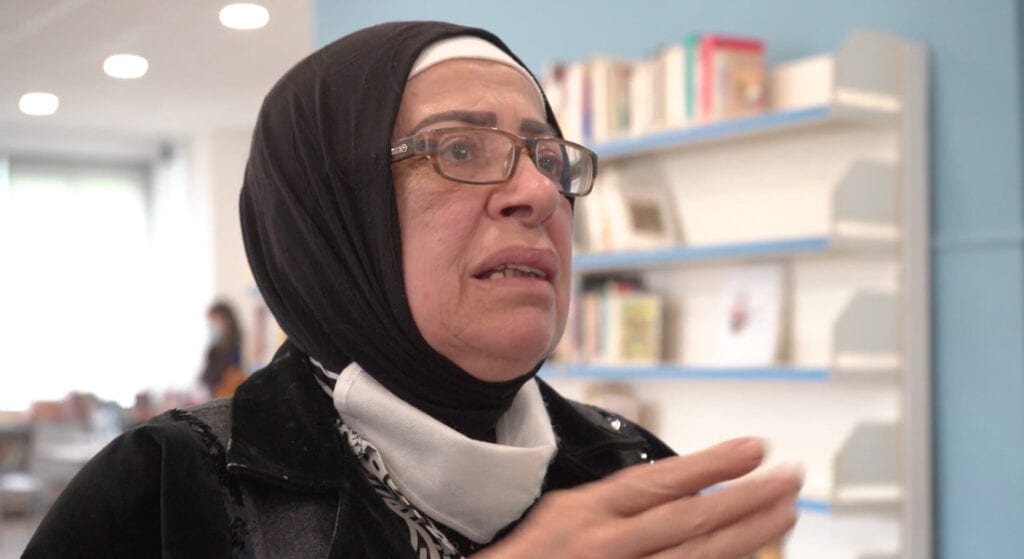
Aida, 56, joined the discussion group with her neighbour, Ahram.
“My deceased husband, bless his soul, used to spoil me by buying me gold accessories when we were young,’ she remembers. ‘I’ve kept them with me until now. Because of Lebanon’s downward spiral, I’ve had to sell every little piece to be able to pay for rent and for my survival.’
‘For me, the most important part today is that all we’ve discussed during the session to be put into action, because there is nobody helping us and we are out on our own. Everyone has turned a blind eye to Lebanon. They’ve taken everything and left us with nothing.’
Find out more about how we’re supporting vulnerable Lebanese and Syrian refugee families in Lebanon.
Medair’s work in Lebanon is made possible by the support of United Nations High Commission for Refugees, Swiss Solidarity, Medicor Foundation, the European Union’s ‘Madad’ Fund, Global Affairs Canada in partnership with Tearfund Canada and generous private donors.
This content was produced with resources gathered by Medair field and headquarters staff. The views expressed herein are those solely of Medair and should not be taken, in any way, to reflect the official opinion of any other organization.


